



Introduction
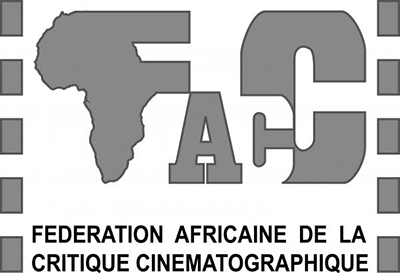 Film criticism in the age of social networking : opportunities and challenges is a symposium organized by the African Federation of Cinematographic Criticism in collaboration with the JCC on 9 and 10 November 2017 at the Hotel Africa. The film critics and social network experts from Tunisia, Cameroon, the Diaspora, Morocco and Senegal will participate in the symposium. The following themes will be discussed:
Film criticism in the age of social networking : opportunities and challenges is a symposium organized by the African Federation of Cinematographic Criticism in collaboration with the JCC on 9 and 10 November 2017 at the Hotel Africa. The film critics and social network experts from Tunisia, Cameroon, the Diaspora, Morocco and Senegal will participate in the symposium. The following themes will be discussed:
- Social networks: processes, benefits and pitfalls
- Visibility of African cinemas, social media tools and strategies
- Criticism management on social networks
- Digital cinema: opportunities and challenges for criticism
Programme
1st session : 10 :00-13 :00
-Welcoming address by the JCC Director and FACC President
Discussion topics:
- Social networks: processes, benefits and pitfalls
- Visibility of African cinemas, social media tools and strategies
Moderator: Khalil Demmoun (Morocco)
Speakers: Baba Diop (Senegal), Claire Diao (France) and Pélagie Ng'onana (Cameroon)
2nd session 15:00 – 18:00
Discussion topics:
- Criticism management on social networks
- Digital cinema: opportunities and challenges for criticism
Moderator: Baba Diop (Senegal)
Speakers: Kamal Ben Ouanes (Tunisia), Thierno Ibrahima Dia (France), and Hammadi Gueroum (Morocco)
Introducing the speakers
Kamel Ben Ouanes
A former amateur film-maker, he has been an avid cinephile since the 1970s.He teaches at the University of Carthage. He is the author of several articles on cinema and was president of the Tunisian Association for the Promotion of Cinematographic Criticism (ATPCC) until May 2008. He was a member of the Jury in the African Documentary Films of FESPACO 2009 and member of the FACC.
Thierno Ibrahima Dia
Senegalese researcher in Arts and Film Criticism. He teaches cinema at the Université Bordeaux Montaigne, France and at the University of Niamey, Niger. His research focuses on Djibril DIOP Mambéty, Friedrich Dürrenmatt, postcolonial societies. Editor-in-chief of Africiné Magazine (www.africine.org, Dakar). He was editorial coordinator of Francophone Images (OIF, Paris) and was Cinema Coordinator at the 3rd World Festival of Negro Arts in Dakar (FESMAN 2010). He was in charge of the monthly cinema club Ciné Palabres (2003-2011) organized by the association Cinéma Africain Promotion and the Bordeaux City Council at the Bordeaux Mériadeck Municipal Library. He has recently published Arts, négritude et métamorphorses identitaires (co-director, with Daniela Ricci & Thomas Louis Cepitelli), Ed. L'Harmattan, December 2016. He is a member of the National Committee for Secularism (Ligue de l'Enseignement, Paris).
Pélagie Ng’onana
Cameroon journalist and film critic Pélagie NG'ONANA is the former president of CINEPRESS (Cameroon Association of Cinema Critics Journalists) and is currently General Treasurer of the FACC. Editor of the monthly cultural magazine Mosaïques, she has collaborated with film magazines and websites (www.africine.org, www.images francophones.org) and participated in juries at various festivals. Facebook pages administrator, this journalist is currently working on creating a blog dedicated to cinematographic chronicles.
Claire Diao
Franco-Burkina Faso journalist and film critic, Claire Diao is the initiator of the itinerant program of short films Quartiers Lointains, co-founder of the Pan-African cinema magazine AWOTELE and manager of the distribution company Sudu Connection. Her essay Double Vague, le nouveau souffle du cinéma français, was published by Au Diable Vauvert in May 2017
Hammadi Gueroum
He is a lecturer at Ben Msik University in Casablanca and Doha Film Institute in Qatar and the founder of the Casablanca Film and Human Rights Film Festival and the Festival of Cinema and Education. President of the Moroccan Centre for Image Education, he supervised several workshops on film analysis and screenwriting. He is a founding member of the Moroccan Association of Cinema Critics and Artistic Director of the Festival of Cinéma d’Auteur in Rabat.
Baba Diop
Journalist and film critic, Baba Diop teaches journalism at the ISSIC (Dakar) and at the Gaston Berger University in Saint-Louis (Senegal) for the program of Master Degree in Documentary Production, after teaching at the Cheikh Anta Diop University in Dakar.
Former President of the Senegalese Association of Cinema Critics (ASCC) in 2008, Baba Diop was elected president of the African Federation of Cinematographic Critics until 2015. He is the founder of Ecrans d’Afrique
Introduction
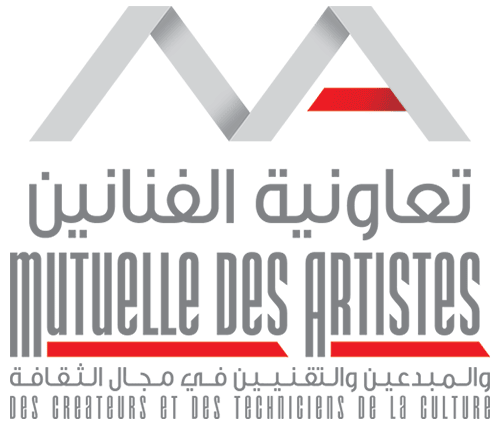 For its first demonstration and on the JCC2 017 Occasion, La Mutuelle des Artistes appears to tunisian filmamkers, arab and african too, organising a double event concerning awarness on the necessary solidarity between artists, producers and public authorities. Born after years of associative struggle LA Mutuelle des Artistes in association wth La Cinémathèque, the ARFT, the ACIT, and the technician union for a meeting, discussion on the social situation of the tunisian artists.
For its first demonstration and on the JCC2 017 Occasion, La Mutuelle des Artistes appears to tunisian filmamkers, arab and african too, organising a double event concerning awarness on the necessary solidarity between artists, producers and public authorities. Born after years of associative struggle LA Mutuelle des Artistes in association wth La Cinémathèque, the ARFT, the ACIT, and the technician union for a meeting, discussion on the social situation of the tunisian artists.
Type: Feature Documentary
Film Title: Les coopérants
Duration: 110 min
Year of production: 1983
Country: Cameroon
Director: Arthur Si Bita
Synopsis:
Imagine that you abandon your confort to discover the simplicity and the real meaning of living in community. This is the adventure of seven students. During their summer hollydays they left behind them confort and modernity and decided to discover the life within the village in the forest, discovering by the way the real social values and the different political issues that countries can face.«LES COOPERANTS » gather the best political ideas of that period : Fight against tribalism, the promotion of national civic service and inner development.
Biography:
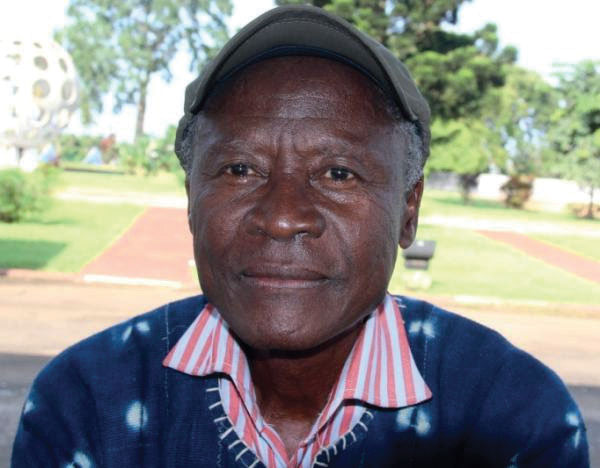 Born in 1948 at San Melina, he’s graduated in contemporary littérature and theatre He is also a teacher and cinema critic. He undersigned with LES COOPERANT the highest film budget of camerouanian cinema ( more than 200 000 euros). The film is a success and won the Tanit de Bronze in 1984 JCC.and awarded as best film music for Pierre Akendanqué from Gabon during the FESPACO in 1985.
Born in 1948 at San Melina, he’s graduated in contemporary littérature and theatre He is also a teacher and cinema critic. He undersigned with LES COOPERANT the highest film budget of camerouanian cinema ( more than 200 000 euros). The film is a success and won the Tanit de Bronze in 1984 JCC.and awarded as best film music for Pierre Akendanqué from Gabon during the FESPACO in 1985.
November 2016, he recieved the medallion of Chevalier de l’ordre de valeur given from the ministry of Art and Culture, Narcisse Mouelle Kombi few days before his death in november 2016.
Speakers:
Mounir Baaziz: President of the constitutional o_ce of the mutual
Majid Jellouli: Director, Man of _eatert and an Academic
Mohamed Challouf: Director
Cheikh Oumar Sissoko: General secretary of Fepaci
Félicité Wouassi: Cameroonian actress
In the presence of:
Hichem Ben Ammar, Director of the Tunisian Cinematheque With African and Arab _lmmakers among
the festival's guests.
Program:
10:00 - 10:15: Speech of Mr. Mounir Baaziz: Presentation of the Tunisian Mutual Artists.
10:15 - 10:45: Speech of Sheikh Omar Sissoko: FEPACI and the status of Filmmakers/Artists in Africa.
10:45 - 11:15: Speech of Mrs.Félicité Wouassi: Tribute to the status of Artist in Africa.
11:30 - 12:00: Speech of Abdelmajid Jellouli: Being an artist in Africa: the Tunisian example.
12:00 - 12:20: Speech of Mohamed Challouf: Living and dying for his Art in Africa.
12:20 - 13:30: Debate.
Introduction
This meeting about « The role of Films Commission in developing filming»,will be the occasion to honor the Euro-Mediterranean Co-Production Center which brings together the collective of Euro-Mediterranean Film Commissions recently created at the 70th Cannes Film Festival in May 2017 and of which Tunisia is a founding member , and also to discuss different subjects about the movie industry.
Program
9:00 : A word of welcome
9:10 : 1st intervention : Maximization of filming facilitation mechanisms
9:45 : 2d intervention : Role of film commissions in promoting a country or a region as a location for filming
11h : Coffee
11:15 : 3d intervention : Experience in setting up legislation to encourage and facilitate filming
12:00 : 4th intervention : The Mediterranean area: An ideal space for developing co-productions.
Each of the four themes will be presented by an expert for ten minutes (10), followed by a panel of three experts and a moderator who will discuss one of the themes for 20 minutes (20) and then a Q&R session with the public for fifteen minutes (15).
12:45 : Lunch
14:00 – 15:30 : Round tables in small groups around the four themes for an hour and a half followed by recommendations.
Introduction
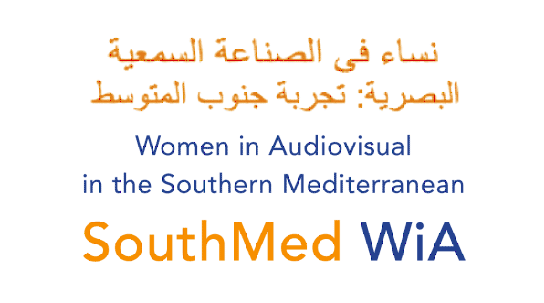 Nov. 2017 - SouthMedWiA, a project co-funded by the European Union under the regional programmeMedFilm.
The project SouthMedWiA, is designed to promote and support gender equality in the audiovisual sector, contributing to sustainable development and cultural diversity, in seven Southern Mediterranean countries: Algeria, Egypt, Jordan, Lebanon, Morocco, Palestine, Tunisia.
Nov. 2017 - SouthMedWiA, a project co-funded by the European Union under the regional programmeMedFilm.
The project SouthMedWiA, is designed to promote and support gender equality in the audiovisual sector, contributing to sustainable development and cultural diversity, in seven Southern Mediterranean countries: Algeria, Egypt, Jordan, Lebanon, Morocco, Palestine, Tunisia.
SouthMedWiA - Towards Greater Gender Equality: Promoting the Role and Image of Womenin the Southern Mediterranean Audiovisual Sector was launched on February 1st, 2017 for a thirty-month period. It is implemented by a consortium led by Interarts in Spain in partnership with the Higher School of Audiovisual and Cinema (ESAC) in Tunisia and three non-governmental organizations: Culture & Media Agency Europe (CUMEDIAE) in Belgium, Permanent Conference of the Mediterranean Audiovisual Operators (COPEAM) in Italy and Screen Institute Beirut (SIB) in Lebanon.
From 5 to 9 November 2017, the first event of Smed WiA will take place in Tunisia, in partnership with the Carthage Film Days. This event aims to raise awareness about the representation and presence of women in the audiovisual sector and to strengthen the capacities of professional women in the sector of the target countries. It will also be an opportunity to announce the four projects that will benefit from sub-grants in the amount of € 340,000 allocated by SouthMed WiA.
![]() Press release "Thousand and One Films"
Press release "Thousand and One Films"
![]() Press release CADC CNCI
Press release CADC CNCI
![]() Press JIDC2017
Press JIDC2017
![]() Press conference
Press conference
Introduction
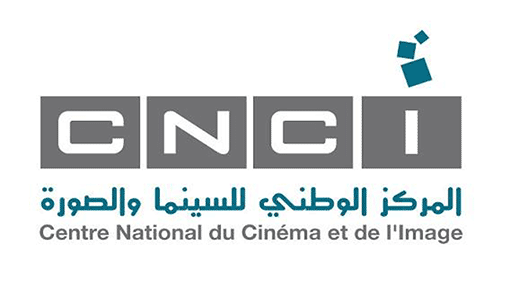 Digital and creative industries, including the media, cultural and digital services, represent an opportunity for Tunisia, which has all the potentials to position itself in this niche with a high added value and which could absorb a large number of higher education graduates and Tunisian freelancers. Those are acknowledged for their creative talents and technological skills.
Digital and creative industries, including the media, cultural and digital services, represent an opportunity for Tunisia, which has all the potentials to position itself in this niche with a high added value and which could absorb a large number of higher education graduates and Tunisian freelancers. Those are acknowledged for their creative talents and technological skills.
During these two thematic days dedicated to "Creative and Digital Industries in Tunisia: Expectations and Opportunities", we focus on the video game industry that is emerging all over the world with a worldwide income of nearly 100 billion euros. In addition, it has always been confirmed that Tunisia has a remarkable number of motivated, creative and competent young Tunisians who have started successful experiences in the video games sector.
Accordingly, in parallel with the film industry, CNCI‘s task
now is to investigate on the place of the video game industry in the Tunisian market with the aim of offering a better assistance to producers through managerial ,technological and financial support. The business models of such an industry are varied and have to adapt to several changes, such as dematerialization or piracy, in addition to the constant evolution of digital technologies.
The CNCI, in collaboration with its various partners and associations in the field of video games, transmedia and 3D animation, is exerting all efforts to look for opportunities and try to meet the different expectations of all actors in the sector.
Professionals and tenured academics meet during these two days to share their experiences and discuss the key issues raised by young freelancers and investors.
Program
National Project
Project Leader: Moncef Dhouib
The "1001 Films" project will be setting up workshops in schools across the country to introduce pupils to the basic rules of filming and images.
The digital revolution put all of us in the era of images. In addition to speech and writing, the image imposes itself as a new universal language.
It is therefore necessary to introduce our children from an early age to this new language, the true tool of our time.
Bringing this training to as many children as possible across the country, enabling them to produce 1001 documentaries is an exercises with the aim to facilitate access to culture and the arts for all.